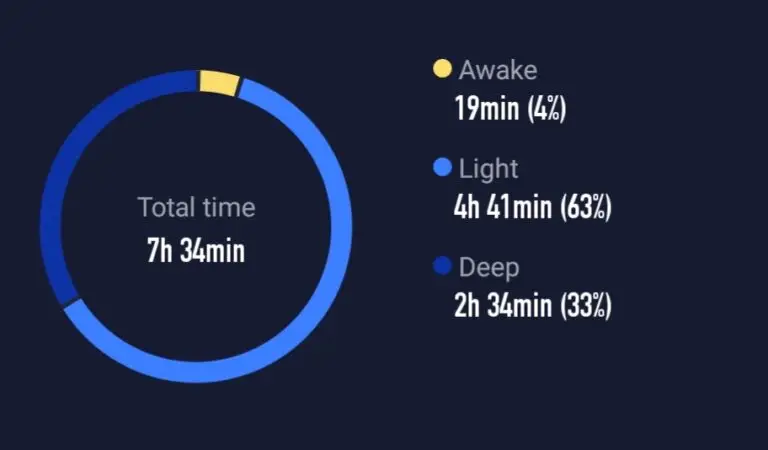The Essential Role of Sleep in Health
By K10 Patel / Jan 16th, 2024
Sleep is an essential part of human life. You will spend more time sleeping than any other activity throughout the duration of your life. Sleep is far more important than just resting your body. Sleep plays a crucial role in how you function physiologically, emotionally, and cognitively. Giving your body evening sleep hours allows for your body to make new muscle tissue or repair any damaged muscle fibers.
“I Will Catch Up on My Sleep Tomorrow” – Think Again.
There is no such thing as catch-up sleep. Several studies exist but no facts have been established from a medical standpoint that states catch-up sleep is a real thing.
Catch-up sleep is the concept of compensating for lack of sleep prior to today. Individuals who need to make up for lost sleep by extending their sleep time the following day(s), need to train themselves to consistently get quality sleep.
Just because you slept 5 hours last night, does not mean that if you sleep 10 hours tonight that you will catch up from yesterday’s lack of sleep. The idea that your body can make up for your sleep debt from last night or two nights ago is a good one. If only our bodies worked that way.
Inconsistent sleep durations are a perfect way to disrupt your body’s natural circadian rhythm. These types of disruptions make it challenging for your body to fully recover from sleep debt. There may be some recovery, but not a full recovery. Consistently changing your internal clock for when you go to bed and wake-up can have a big effect on your overall health, at least from a cognitive standpoint.
By cognitive, I mean the way your brain understands and learns things. The lack of sleep from two nights ago can have an effect a few days down the line since your body may continue to experience the negative effects from sleep deprivation without you knowing it. For some people, the “catch up” time may extend to a week or more. The negative effects can be subtle or very noticeable depending on other factors such as age, weight, and activities performed throughout the day.

Remember that its not just the number of hours spent in bed because the quality of your sleep also matters. For example, if you are in bed for 9 hours but only get shut eye for 5 hours, this will affect your body the following day(s). Your sleep pattern needs to through the cycle of light sleep, deep sleep, and something called REM which stands for Rapid Eye Movement. Here is a little more about each of the three sleep stages:
Light Sleep – This is known as the first stage of sleep. Typically, this is most of your sleep because it occupies about 50% of your actual sleep time.
Deep Sleep – This stage of sleep is very important. Some call this the non-REM sleep stage. In this stage your muscles are relaxed, and your heart rate is slow and steady. This stage is the part of your sleep where your body repairs itself, strengthens your immune system, and builds bone and muscle. So, if you went on a 3-mile run this morning, that same night your body will make new muscle tissue and repair any muscle fibers from normal wear and tear. It is very difficult for someone to wake you up in this stage. This should occupy anywhere from 15% to 30% of your sleep.
Note that your deep sleep duration will decrease as you age. For example, if two individuals each have an 8-hour sleep, the 30-year-old will have more deep sleep than a 60-year-old. There is a negative correlation when it comes to age and maintaining sleep. Sleep has many other factors other than age that come into play as well such as your weight, sleep environment, napping in the daytime, stress, caffeine intake and meds.
Rapid Eye Movement (REM) – This is the stage of sleep where you dream. It is associated with increased brain activity and as the name suggests, your eyes move rapidly. It is typically associated with an increased heart rate (higher heart rate than light sleep).
How Much Rest Do I Need Every Night?
I would recommend 7 to 9 hours of sleep. I’m by no means an expert on the topic, but anything less than 7 hours would not be recommended. There are always exceptions to this such that I may come across somebody who gets 6 hours of quality sleep every night and be able to function properly. Those individuals are rare, and I would be very curious to know how such a person would behave as compared to getting 7 hours of sleep.
By my understanding, consistently getting 6 hours of sleep would reduce life expectancy and mental sharpness over a long-term period of less than seven hours sleep.
There are a lot of studies out there for comparison of groups when getting 6 or less hours of sleep versus 7 to 9 hours of sleep. The general conclusion to all of them was that there is a significant difference in cognitive performance between the two groups. The group with 6 or less hours of sleep did not perform as well as the other group.
While these studies may not mean much to you, your goal should be to get 7 to 9 hours of sleep so that you don’t have to worry about any adverse effects from sleep deprivation.
How Does Sleep Relate to Runners?
If you are anything like me, you have a fitness watch which tracks your runs. A good fitness watch also assesses your recovery. For example, my Coros Apex watch tells me my “Recovery %” and tracks my sleep. Tracking your sleep is great way to know how much you have slept and the quality of your sleep.

Sleep is critical for maintaining and improving your running performance. While you are sleeping, your body is repairing and rebuilding those muscle cells which you utilized during your running workout. Sleep is even more critical for those on a training program such as for a half or full marathon since your weekly mileage is going to continue to rise. With more miles every week, you will need to prioritize your sleep for sufficient recovery to prevent injury and build muscle.
When you are running, you are building endurance with each workout. Your running workout also builds your strength and stamina. Each step you take, causes a small amount of tissue damage. You are basically breaking down your body during the run. Recovery time in the form of a good night’s sleep is essential to allow your body enough time to recover for your next run.
A lack of sleep will affect not only running performance on the pavement, but also other aspects such as higher risk for injury, weaker immune system so higher chance of sickness, decreased reaction time, and a decreased medium to get to your fatigue point.
Side Notes That I Think Are Worth Mentioning
Side Note No. 1: Since sleep is essential and everyone needs it every day, don’t go cheap on your mattress. Buying the best mattress that your body is comfortable on when sleeping is critical for a good night’s rest.
A lot of people try to compromise and settle for a cheaper price or cheaper materials when buying a new mattress but refrain from doing this because you will be spending one-third of your 24-hour day sleeping. Your mattress is one of the most used items in your household daily, therefore, buy something that is super comfortable.

Side Note No. 2: Drink a glass (or two) of water as soon as you wake up. If you get the recommended hours of sleep every night, this means that your body has just spent the last 7 to 8 hours without water. The human body is made of approximately 70% water, so it is essential for body to nourish. One glass right after waking up will do your body good.

Final Thoughts
Sleep is a fundamental part of your life, so make sure you get enough of it every single day. A lack of sleep, even if its only one hour, can take many days if not weeks to restore your body back to its natural circadian rhythm. Don’t bank on the weekend to sleep more hours versus the weekdays due to work or social events you have going on. Getting enough rest is very important for your fitness and overall health. Give an appropriate amount of time for your body to repair those torn muscle fibers.
